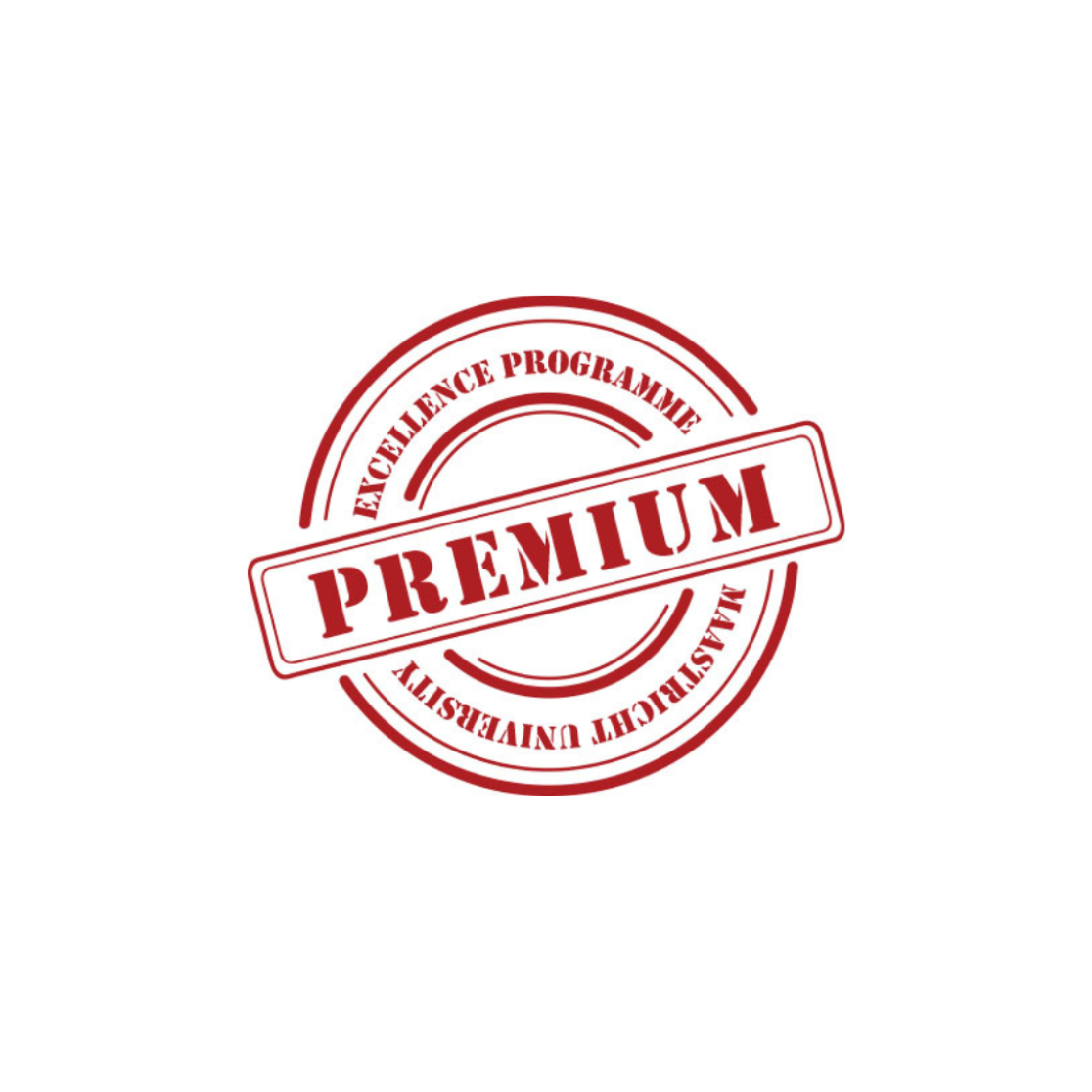Why this programme
The research-intensive master’s in European Studies is an interdisciplinary programme that combines political science, international relations and history. Research plays a primary role from the outset, with research projects integrated into each core module. You will gain in-depth training in methods such as quantitative and qualitative techniques, comparative methods and discourse analysis. You will also develop skills in designing research, writing research proposals and policy reports, publishing your work and applying for funding and research positions in think tanks, governmental institutions or academia. For the elective component, you can complete a research internship, do an exchange abroad or do a Double Degree at the University of Cologne.
In this programme, you will:
- Learn to critically analyse and discuss challenges facing the EU
- Gain experience working in a multidisciplinary, international academic environment
- Receive in-depth training in conducting high-quality research
- Focus on designing, implementing and publishing your own research
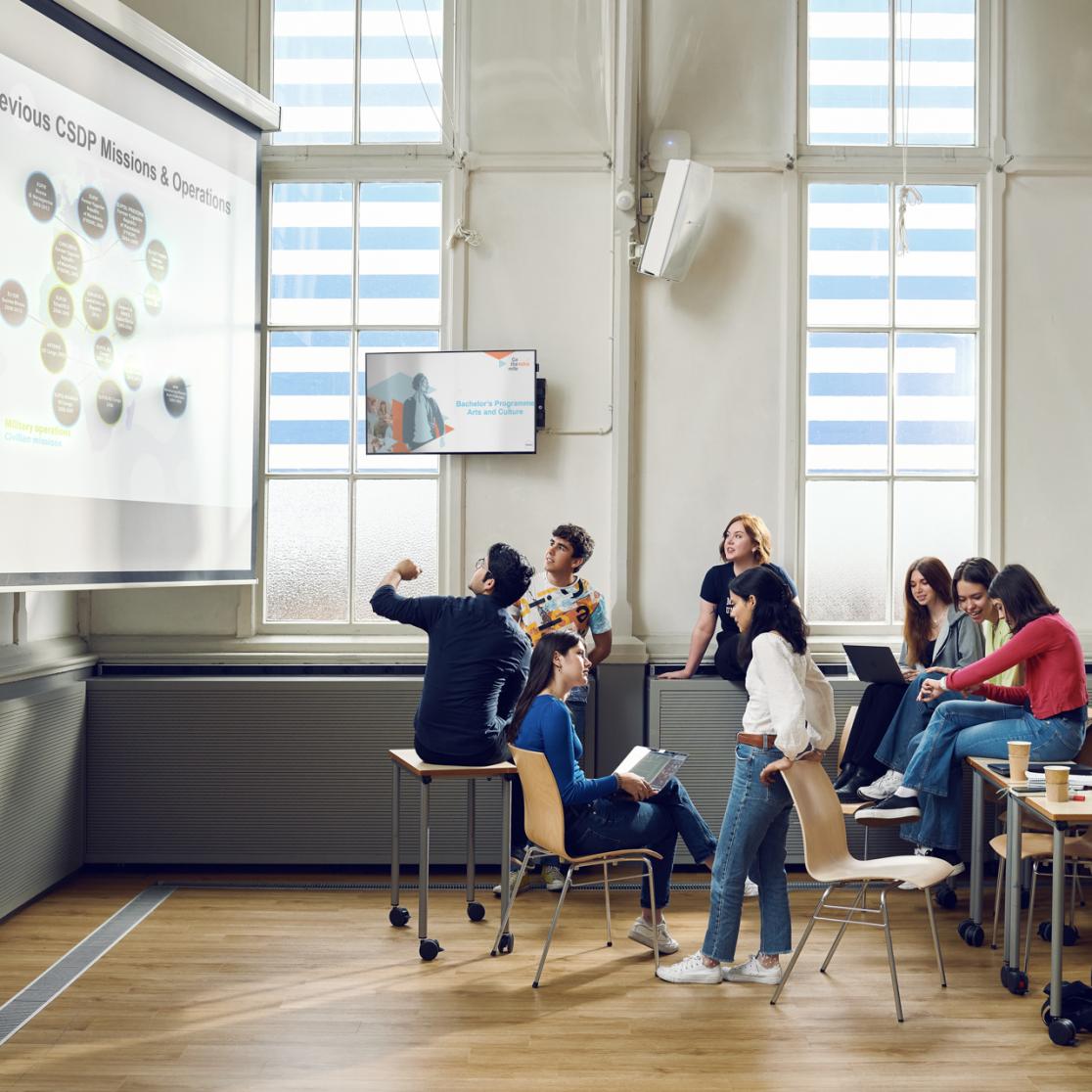
Research skills
The curriculum has an intensive focus on developing skills, such as:
- Searching for specialist literature
- Managing bibliographic references
- Designing a rigorous study
- Interpreting findings
- Presenting results
- Writing for publication
Programme highlights
- tailored training for a career that requires strong research skills, such as in a think tank or in academia, or jobs in politics and journalism
- option to choose specialisations and research methods trainings
- optional Double Degree with Cologne University (Germany)
- hands-on experience through study trips, optional research internship and possibility to present your work at academic conferences in the Netherlands and abroad
- top-rated faculty in one of the largest and most international research groups in European Studies
- truly international: 18 students in the 2024/25 programme, with 8 different nationalities
- a small, close-knit community of students and researchers
- only research master’s programme in European Studies in the Netherlands
- according to Elsevier Best Studies, 81% of our students would recommend this programme to others (www.elsevierweekblad.nl)
A future in research
The overall objective of this programme is to equip graduates for high-level research careers in and outside academia. Thanks to the networks and activities of the research staff at Maastricht University, you will enjoy unique access to researchers at other universities, policymakers at EU institutions and member state administrations, Brussels-based interest groups, think tanks and other actors. Students in this programme also take active part in the Politics and Culture in Europe research programme, which is one of the largest research groups in European Studies. Next to this, research master students from Maastricht University are often invited to join the activities organised by the Netherlands Institute of Government (NIG) and the Research School Political History (RSPH).”
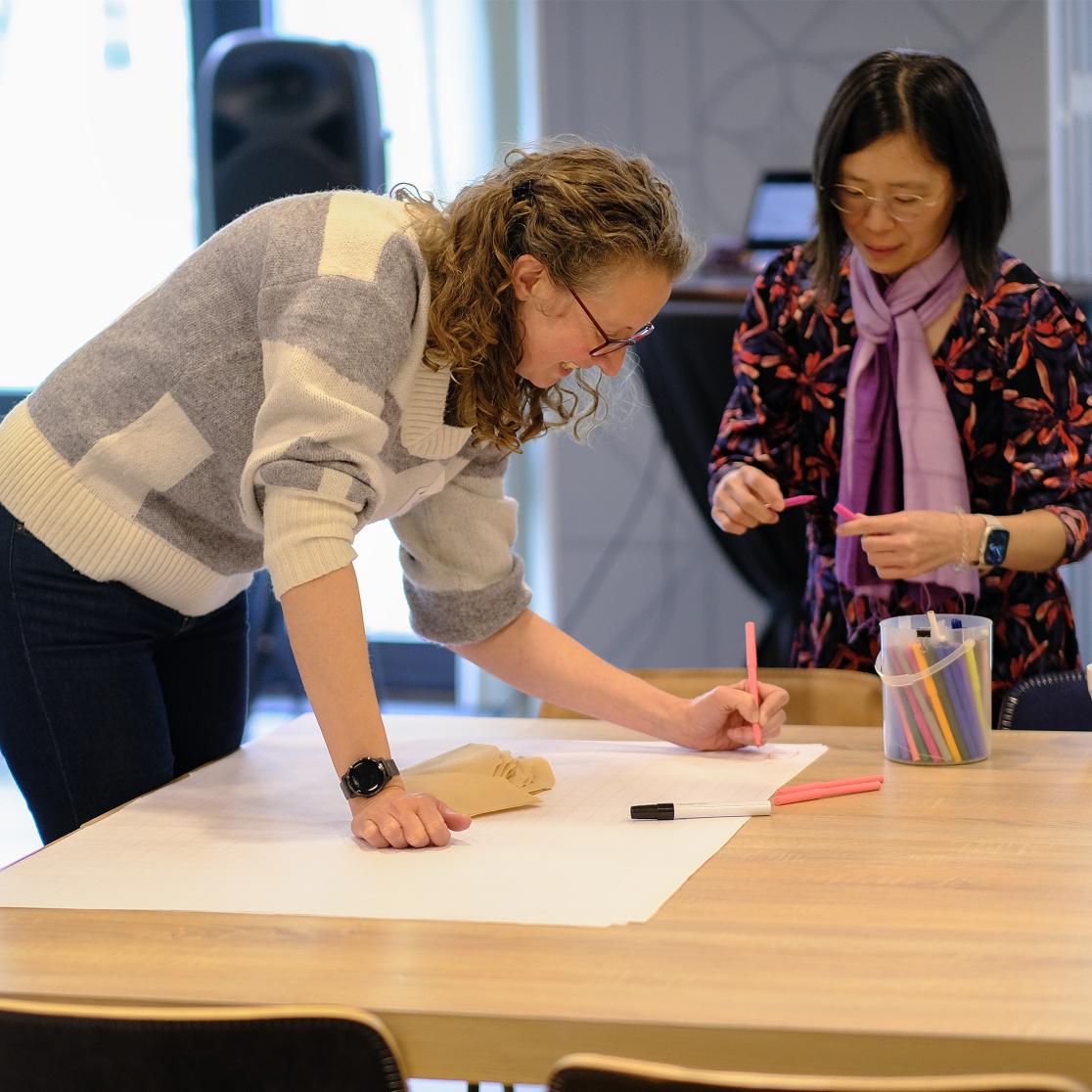
Politics and Culture in Europe
Students in this programme also take active part in the Politics and Culture in Europe (PCE) research programme, which is one of the largest research groups in European Studies. PCE is an established interdisciplinary research programme at Maastricht University. It brings together 50 political scientists, historians and philosophers. The process of European integration since 1945 and questions of European democracy, governance, and foreign policy are central to the PCE research agenda. PCE researchers study the European Union and Europeanisation, yet they also contribute to debates on multilateralism and the global order, and take an interest in transnational history. Methodologically rigorous, the emphasis of PCE is on fundamental research with societal relevance. PCE research is integrated into the curriculum, and by participating in the research programme yourself, you will gain valuable research experience.
PCE research themes
- European policy and governance
- Europe and the crisis of rule-based global order
- Democracy in Europe: Past and present
- Political attitudes and behaviour in Europe
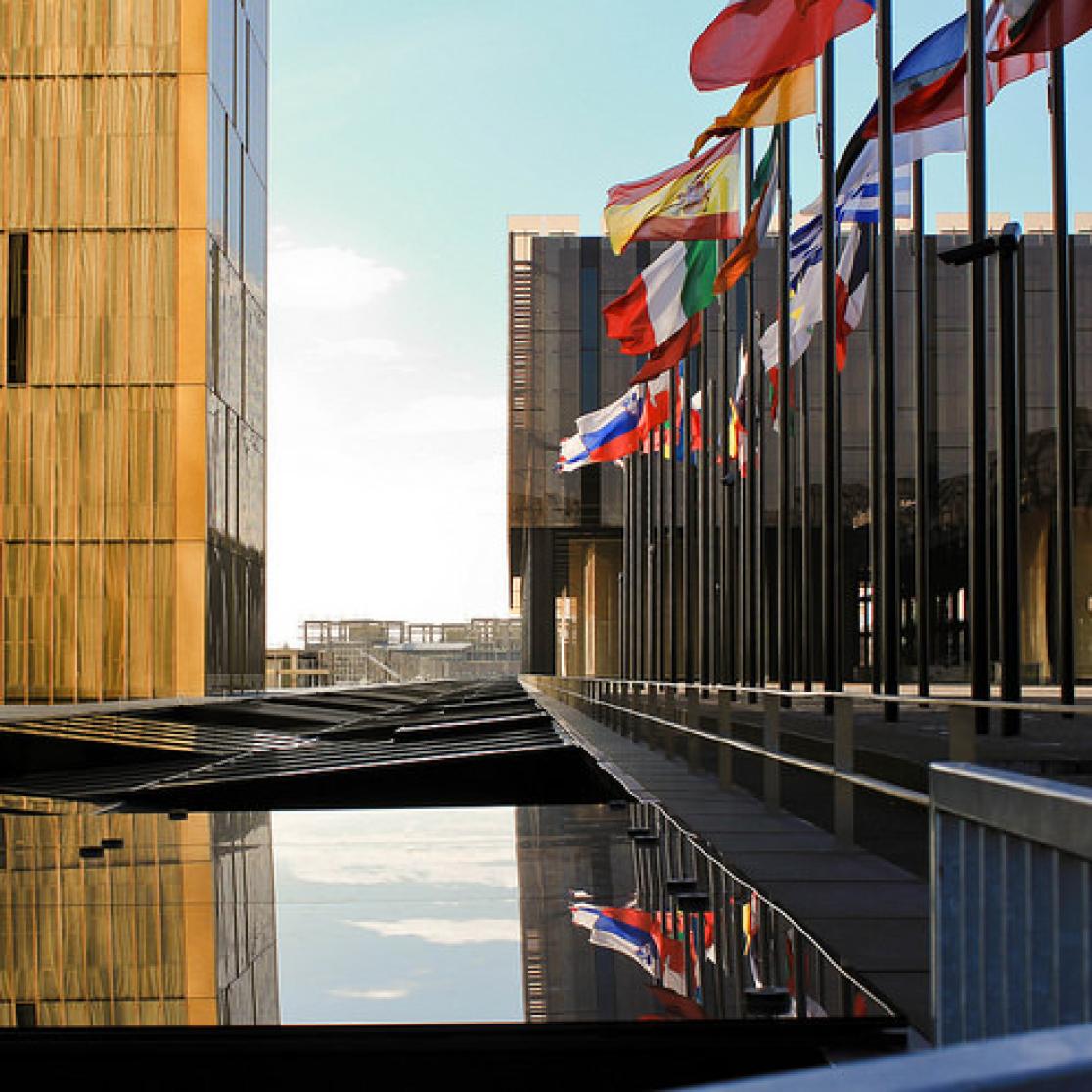
Master's thesis
As part of your master’s thesis, you will have frequent meetings with your supervisor and can consult with methodology specialists. Past topics have included:
- From Words to Action: Climate Security Mainstreaming in EU Foreign Policy
- Chinese Perceptions on EU Security Actorness in the Asia-Pacific Region
- Assessing Economic Resilience in Post-Soviet States: the Uncertain Role of the European Union
- Progressive pioneers or decisively indifferent? Studying the role of advocacy coalitions in the development of the Dutch Equal Treatment Act (1973 -1994)
- Source over Quantity? - The Effect of Civil Society Funding on Access to the EU Institutions
Teaching methods
The research-intensive master’s in European Studies integrates the teaching of advanced knowledge with research done by the students themselves. This integration is achieved through the use of various teaching methods:
- Seminars are given in modules of four or eight weeks in which the most important theories and concepts pertaining to a substantial theme are taught via lectures and tutorials
- Tutorials are small group discussions on lectures and literature
- Workshops give you the opportunity to apply the theories and concepts learned; they're organised around research assignments carried out individually or in small teams
- Methodology courses take place in parallel to the modules and provide you with the necessary methodological concepts and techniques for conducting research
- Skills trainings provide you with the practical skills for conducting and presenting research, such as research design, publishing and grant acquisition
- Research projects include a substantial research paper at the end of the first year and a master’s thesis to be presented at the end of the second year
International classroom
From day one, you will be challenged with differing viewpoints and experiences as you interact with staff and students from all over the world. Your worldview will be enhanced by this interaction, helping you develop international accessibility and understanding. Roughly 90% of the students in this master’s programme come from outside the Netherlands. Such diversity creates an international atmosphere that is strengthened by the international orientation of the programme.
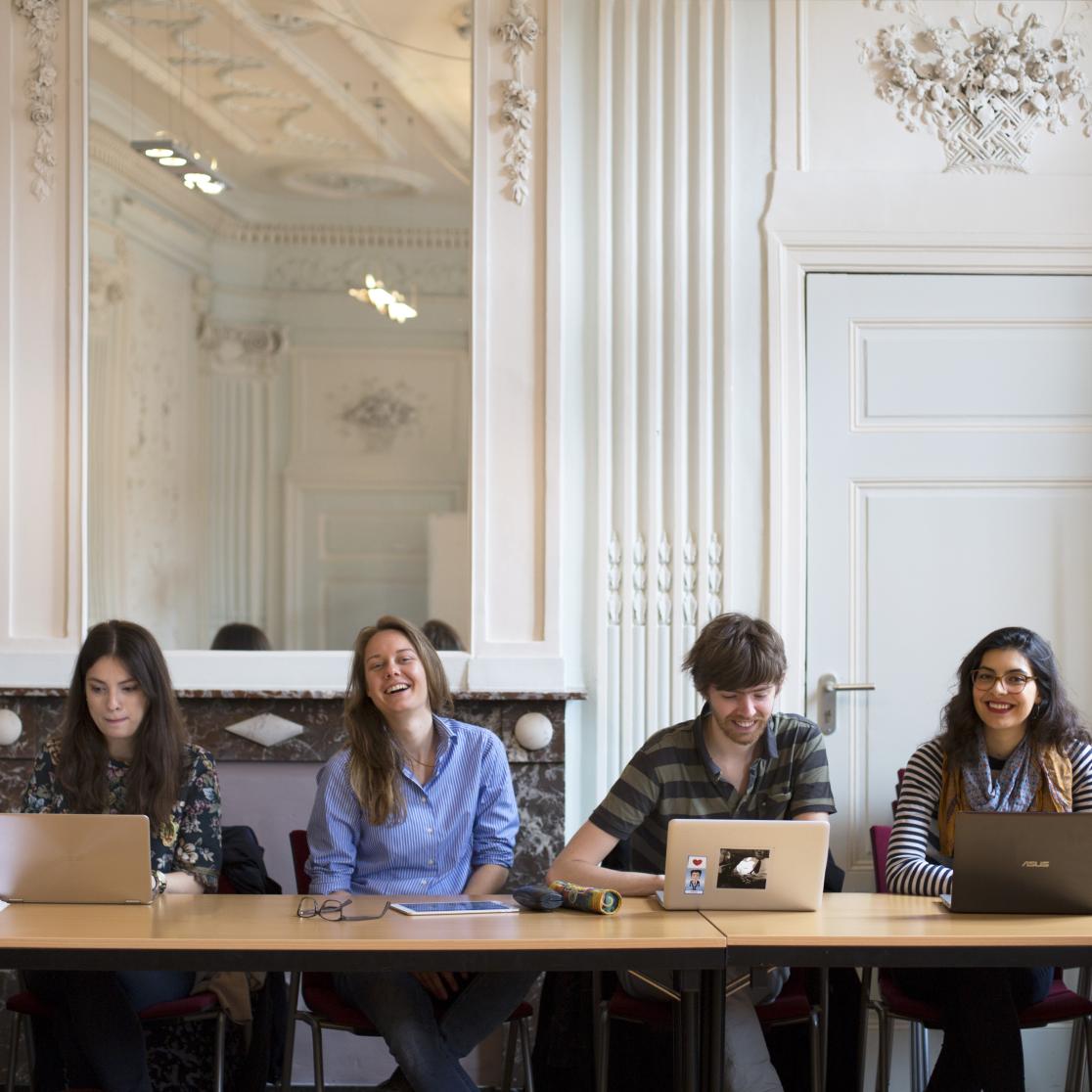
Teaching staff
Yf Reykers (Programme Director)
Johan Adriaensen
Patrick Bijsmans
Giselle Bosse
Francesca Colli
Thomas Conzelmann
Michele Fenzl
Anna Herranz-Surralles
Aleksandra Komornicka
Vincent Lagendijk
Karin van Leeuwen
Luana Russo
Hans Schmeets
Aline Sierp
Aneta Spendzharova
Sophie Vanhoonacker
Soetkin Verhaegen
PREMIUM honours programme
PREMIUM is our Honours programme for high-performing master’s students. If selected, you will work in an interdisciplinary team on a project for a real client from the public or private sector (e.g. Cisco, DHL, EcoAct). Along with guidance from a project mentor, you will receive individual coaching focused on your personal and professional development. You will also attend several workshops and events designed to cultivate valuable knowledge and skills, as well as build a network that provides you with the best preparation possible for the job market.
Are you up for the PREMIUM challenge?
